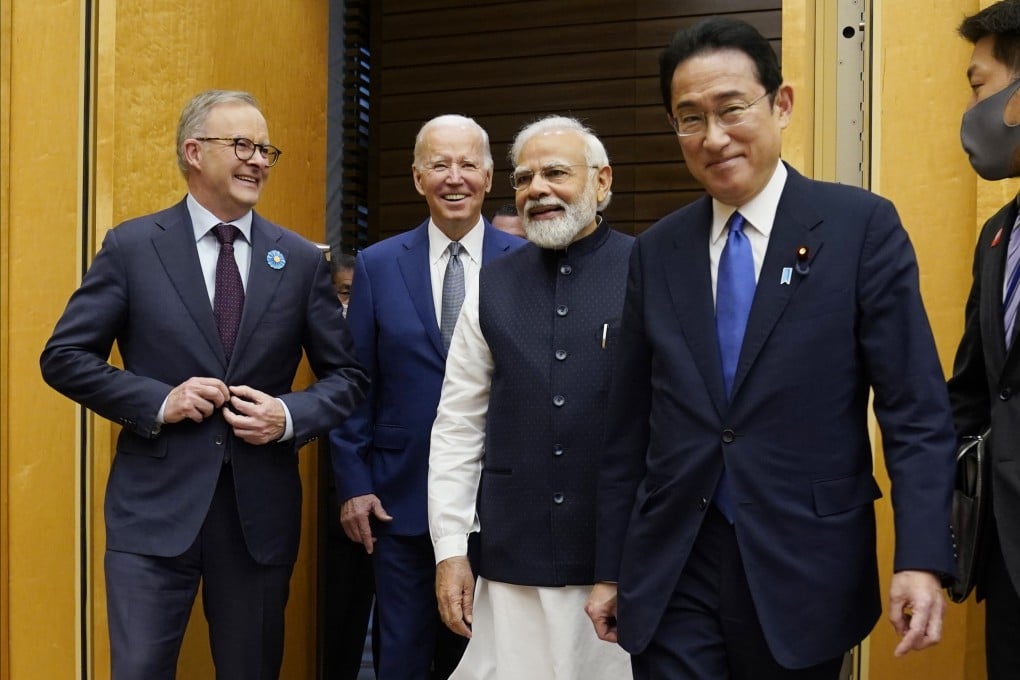Advertisement
Opinion | Australia’s warming ties with China leave its Quad commitments in doubt
- Beijing’s economic coercion drove Australia to seek an alliance in earnest with the US, Japan and India to counter the ‘China threat’
- Now, with the China-Australia trade relationship improving by the day, questions will be raised about Canberra’s commitment to Quad objectives
Reading Time:4 minutes
Why you can trust SCMP
28

The Quadrilateral Security Dialogue (Quad) grouping has suffered several deaths in the popular media. Critics have questioned its feasibility, given the partners’ economic dependence on China and their divergent approaches to world affairs. China’s former foreign minister Wang Yi even once dismissed the Quad as dissipating sea foam.
Since then, the grouping – made up of Australia, India, Japan and the United States – has evolved to address a host of global issues, from vaccines to supply chains, rebutting Wang’s characterisation.
Nevertheless, the Quad’s proactiveness is a recent phenomenon. Over the past two years, it has come together to discuss various global issues including Ukraine, critical technology, Covid-19, supply chain resilience and, of course, maritime security. Through the Quad, the bilateral relationships of the four nations have improved and they have found more common ground to increase cooperation. The catalyst to this development was the perceived threat of China.
Particularly for nations such as Australia and India, which have in the past been cautious about taking strong positions against China, the events of the past two years provided an impetus for increased cooperation among the four nations to explicitly address the “China threat”.
For India, the Doklam stand-off and Galwan valley clash disrupted peace maintained at its border with China for over 50 years. Since the clashes between Indian and Chinese troops in the valley, there has been no interest on either side to dial things back to pre-Galwan days. With the troops of the two nations clashing with clubs and sticks as recently as December, the room for better relations has become limited.
For Australia, the beef, barley and wine row, coupled with Beijing’s unofficial ban on its coal and lobster exports, provided an urgency need to shield itself from potential future acts of economic coercion.
Advertisement
Select Voice
Choose your listening speed
Get through articles 2x faster
1.25x
250 WPM
Slow
Average
Fast
1.25x
